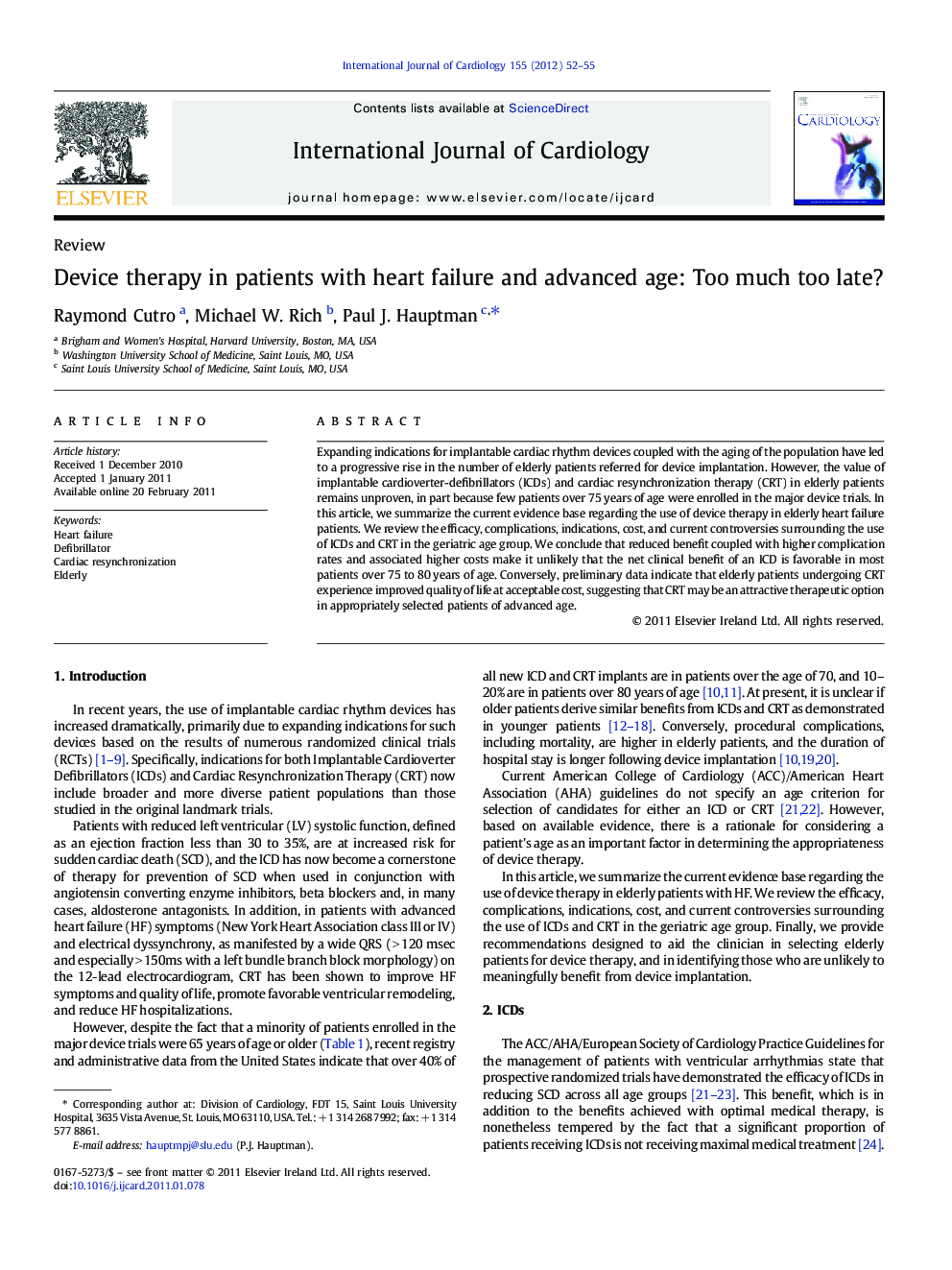| Article ID | Journal | Published Year | Pages | File Type |
|---|---|---|---|---|
| 2930137 | International Journal of Cardiology | 2012 | 4 Pages |
Expanding indications for implantable cardiac rhythm devices coupled with the aging of the population have led to a progressive rise in the number of elderly patients referred for device implantation. However, the value of implantable cardioverter-defibrillators (ICDs) and cardiac resynchronization therapy (CRT) in elderly patients remains unproven, in part because few patients over 75 years of age were enrolled in the major device trials. In this article, we summarize the current evidence base regarding the use of device therapy in elderly heart failure patients. We review the efficacy, complications, indications, cost, and current controversies surrounding the use of ICDs and CRT in the geriatric age group. We conclude that reduced benefit coupled with higher complication rates and associated higher costs make it unlikely that the net clinical benefit of an ICD is favorable in most patients over 75 to 80 years of age. Conversely, preliminary data indicate that elderly patients undergoing CRT experience improved quality of life at acceptable cost, suggesting that CRT may be an attractive therapeutic option in appropriately selected patients of advanced age.
